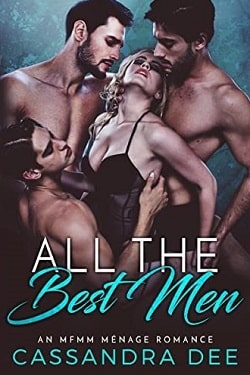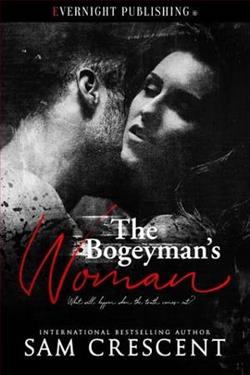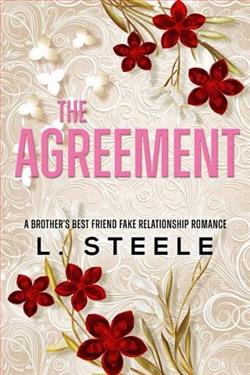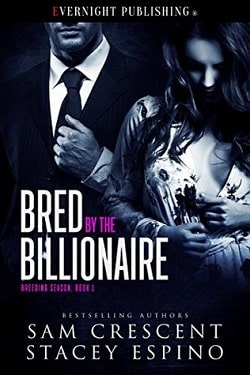Page 18 of The Bone Season
Pleione led us outside. The air was cold enough to snap, all our surroundings smudged by mist. Seb stuck to my side.Head down, eyes open, I told myself. Nick had taught me that rule; I would follow it here.
We walked over grey cobblestones, wet after a night of rain, reflecting the glow of the streetlamps – a pale glow, not blue. It took a moment to realise they were gaslights. The buildings were nowhere near the height of those in London. Julian fell into step beside me as Pleione led us onward. We soon found ourselves in a bustling town.
This street was significantly wider than the first. Not a car or a moto in sight – just a long line of ramshackle dwellings, winding drunkenly from one end to the other. Thin walls propped up scraps of corrugated metal, clothes drying on lines between them.
Larger buildings flanked the slum, grand remnants of ages past. In sharp contrast to the shacks, they were clean and stately, with ornate façades – carved limestone, wooden doors, pointed windows lit by candles. Some were crenellated, like the castles of the monarch days.
Scion had sent us back in time.
About halfway along the street, a group of figures waited on a stage. Hundreds of lanterns flickered around them, illuminating their ornate masks. A violin sang below the boards – voyant music, the sort only a whisperer could perform, luring the nearest spirits.
Looking up at these people – actors, mimes – was an unruly audience. Every member of that audience wore a red tunic and a black gilet.
‘Welcome,’ someone called to us. ‘Everyone, it’s the new crop!’
Rowdy cheers and whistles erupted. Above, the performers began to dance. All of them were clairvoyant; in fact, almost everyone was clairvoyant – the dancers, the spectators, most of my group.
This was no back-alley gathering of thieves.
The performance went on for a while. Not all the spectators were paying attention. Some were talking among themselves, others jeering at the stage. I was sure I heard a shout ofcowards.
Everyone in my group looked just as baffled as I felt. Either my brain was still drug-addled, or this was some kind of voyant cult.
After the initial dance, a woman in a winged mask stepped on to a high platform, her dark hair slicked into a tight bun. She jumped and seized two purple drapes that hung from the rigging above. Weaving her legs and arms around them, she climbed nimbly before unravelling into a pose, earning a smattering of applause.
Looking past her, I took the chance to study the street. This was definitely not the Scion Citadel of London. Old buildings, gas lamps, cobblestones – it was as if centuries had rewound.
I knew exactly where I was.
In 1859, on the first of September, the university city of Oxford had burned to the ground. At the time, the tragedy had been pinned on the Carrington Event, a geomagnetic storm of unprecedented magnitude. The story had never made sense to me, but there was no point in questioning Scion.
What remained of the city was a Type A Restricted Sector. Because of some indefinable contamination caused by the storm, no one was allowed to set foot there. Scion had wiped it from the maps.
According to Jaxon, a journalist from theRoaring Boyhad tried to drive to Oxford once. He had never returned. TheRoaring Boy– a penny paper, already on thin ice – had vanished a week later.
Pleione turned to look at us. In the dark, her eyes were as bright as the gas lamps.
‘Come,’ she said. ‘You do not want to be late for the oration.’
We followed her, stupefied.
She brought us to a pair of lofty iron gates. Two men let us pass. Both bore a resemblance to Pleione – same yellow eyes, same daunting stature, same faint metallic sheen. Pleione sailed into a large courtyard, where other people joined us, dressed in white or grey.
We filed into a stone building, forbidding in its grandeur. Pleione led us down its corridors, illuminated by flickering chandeliers and candelabras.
Our journey ended – or began – in a cavernous room where bookshelves swept up to a plaster ceiling, packed with beautiful old tomes. The décor was baroque, the dressed stone floor like a chessboard, arched windows lining one of the walls. Pleione shepherded us into rows. I stood between Julian and Seb.
This room was a melting pot of voyants, from augurs and soothsayers to mediums and sensors. As far as I could tell, the oracle was the only person from my order.
Pleione went to stand on a low platform with a balustrade. She joined the end of a line of tall figures, presumably her fellow Rephaim (whatever that meant), who had the look of statues on display in a museum.
All of them wore dark clothing in a style that reminded me of the Tudor portraits I had seen at the black market – though a touch more practical, bordering on military in their cut. They almost looked human, but those dreamscapes and yellow eyes told me otherwise.
One of them – a pale, expressionless woman – finally approached the balustrade.
‘If you paid me all the money in London,’ Julian said out of the corner of his mouth, ‘I couldn’t even guess what she was going to say.’
The room slowly fell silent.















